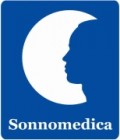Snoring and sleep apnea
More than half of the population snore and nearly 1 out of 4 suffer from sleep apnea.
Snoring in itself is not a sleep disorder, but very often creates many problems to those who sleep near us.

OSAS is a disease not to be underestimated: those who suffer from it have a greater risk of developing hypertension, stroke, as well as obesity and diabetes. In addition, those with this syndrome often experience a continuous sense of fatigue and excessive daytime sleepiness, which causes greater risk of being involved in work and road accidents.
How do you know if you are suffering from sleep apnea?
OSAS is often very difficult to diagnose, because the patient can be asymptomatic or do not recognize the symptoms. How to do understand if you suffer from obstructive sleep apnea? First, with the help of family members, be aware of your snoring: if you are in a habitual, persistent way, and if you have respiratory breaks, you may suffer from OSAS.
What are snoring and sleep apnea therapies?
Today, snoring and nighttime apnea therapies are extremely personalized and often multi-disciplinary.
Our path for snoring and sleep apnea
Sonnomedica – our sleep disorders center – is specialized in snoring and sleep apnea and allows every patient – adult or child – to be followed by a multidisciplinary team of medical specialists that act in an integrated manner, ensuring a highly customized care pathway.
In our medical center, those who suffer from snoring and sleep apnea are followed throughout the course with special diagnostic activities (also at home), the availability of all the best therapies.

If you think you may suffer from snoring or obstructive sleep apnea, we suggest sleep apnea and snoring in Sonnomedica, consisting of a specialist visit to a sleep nursing specialist who will perform upper airway fibroscopy and analyze the The results of the previous polysomnography. Based on what emerged during the specialist visit, it will be possible to establish an accurate diagnosis and, for those who want it, to set up the most suitable therapy right away.
